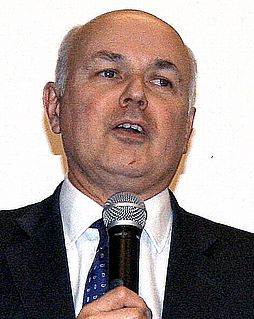 W
WThe UK Albums Chart is a music chart compiled by the Official Charts Company (OCC) that calculates the best-selling albums of the week in the United Kingdom. Initially based solely on the sales of albums in the vinyl and CD formats, digital albums began being included from April 2006. Since March 2015, the chart has also been based on audio streaming figures, however the OCC still compiles a 'sales' (only) chart and still quotes these traditional sales figures in its features and articles. Note: The 21st century actually began in 2001.
 W
WGordon Brown formed the Brown ministry after being invited by Queen Elizabeth II to begin a new government following the resignation of the previous Prime Minister of the United Kingdom, Tony Blair, on 27 June 2007. In his inaugural cabinet, Brown appointed the United Kingdom's first female Home Secretary, Jacqui Smith.
 W
WMigrants have gathered in and around Calais, on the northern French coast, since at least the late 1990s seeking to enter the United Kingdom from the French port by crossing the Channel Tunnel or stowing away in the cargo area of lorries heading for ferries that cross the English Channel. During this time, informal camps of migrants have formed, the most notorious commonly referred to as the Calais Jungle. Other migrants come to the area because they are homeless while seeking asylum in France. The presence of migrants in and around Calais has affected the British and French governments, the Eurotunnel and P&O Ferries companies, and lorry drivers heading for the UK and their companies. EuroTunnel, the company that operates the Channel Tunnel, said that it intercepted more than 37,000 migrants between January and July 2015.
 W
WThe Dreadnought class is the future replacement for the Vanguard class of ballistic missile submarines. Like their predecessors they will carry Trident II D-5 missiles. The Vanguard submarines entered service in the United Kingdom in the 1990s with an intended service life of 25 years. Their replacement is necessary if the Royal Navy is to maintain a continuous at-sea deterrent (CASD), the principle of operation behind the Trident system.
 W
WThe Fifth Periodic Review of Westminster constituencies was undertaken between 2000 and 2007 by the four boundary commissions for England, Scotland, Wales and Northern Ireland for the British Parliament. The changes to constituencies from three reviews were approved and took effect at the 2010 United Kingdom general election; that for Scotland took effect at the 2005 election.
 W
WThe first Blair ministry lasted from May 1997 to June 2001. After eighteen years in opposition, Labour ousted the Conservatives at the May 1997 election with a 179-seat majority. The Prime Minister, Tony Blair, who turned 44 years old days after leading Labour to victory, was the youngest Prime Minister of the twentieth century. He was surpassed as the youngest Prime Minister by David Cameron who in 2010 became Prime Minister at the age of 43.
 W
WThis is a list of Acts of the Parliament of the United Kingdom from the year 2000 to 2019. Note that the first parliament of the United Kingdom was held in 1801; parliaments between 1707 and 1800 were either parliaments of Great Britain or of Ireland). For Acts passed up until 1707 see List of Acts of the Parliament of England and List of Acts of the Parliament of Scotland. For Acts passed from 1707 to 1800 see List of Acts of the Parliament of Great Britain. See also the List of Acts of the Parliament of Ireland.
 W
WThe sale of UK gold reserves was a policy pursued by HM Treasury over the period between 1999 and 2002, when gold prices were at their lowest in 20 years, following an extended bear market. The period itself has been dubbed by some commentators as the Brown Bottom or Brown's Bottom.
 W
WThe second Blair ministry lasted from June 2001 to May 2005. Following the financial crisis in Japan at the end of the 1990s, there was a brief recession in other parts of the developed world including Germany, Italy and France in the early-2000s, but once again, the UK avoided recession and continued to enjoy a strong economy and low unemployment.
 W
WThe UK Shadow Cabinet was appointed by Conservative Party leader Iain Duncan Smith. Following his initial appointments in September 2001 Smith managed three reshuffles before his resignation as leader in November 2003.
 W
WThe Shadow Cabinet appointed by Conservative Party leader William Hague was the Official Opposition Shadow Cabinet from 1997 to 2001. Following his initial appointments in June 1997, Hague reshuffled the Shadow Cabinet five times before his resignation as leader following defeat in the 2001 general election.
 W
WThe third Blair ministry lasted from May 2005 to June 2007. The election on 5 May 2005 saw Labour win a historic third successive term in power, though their majority now stood at 66 seats – compared to 167 four years earlier – and they failed to gain any new seats. Blair had already declared that the new term in parliament would be his last.